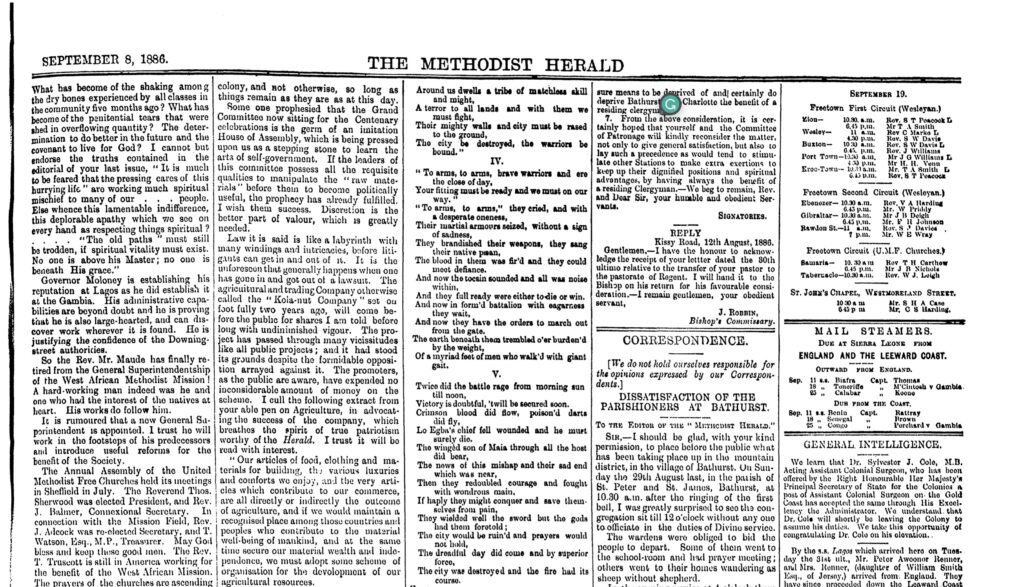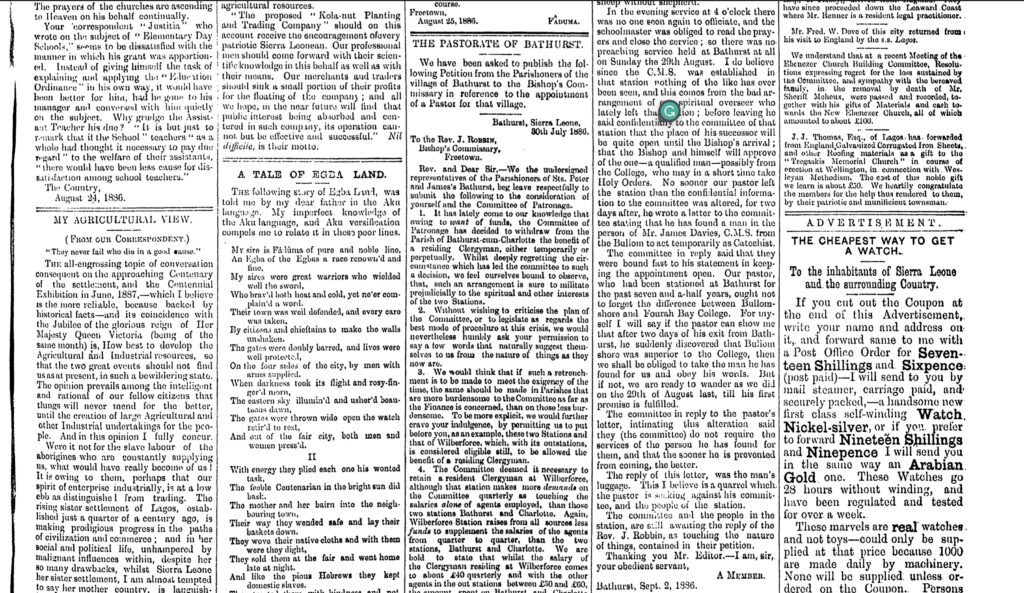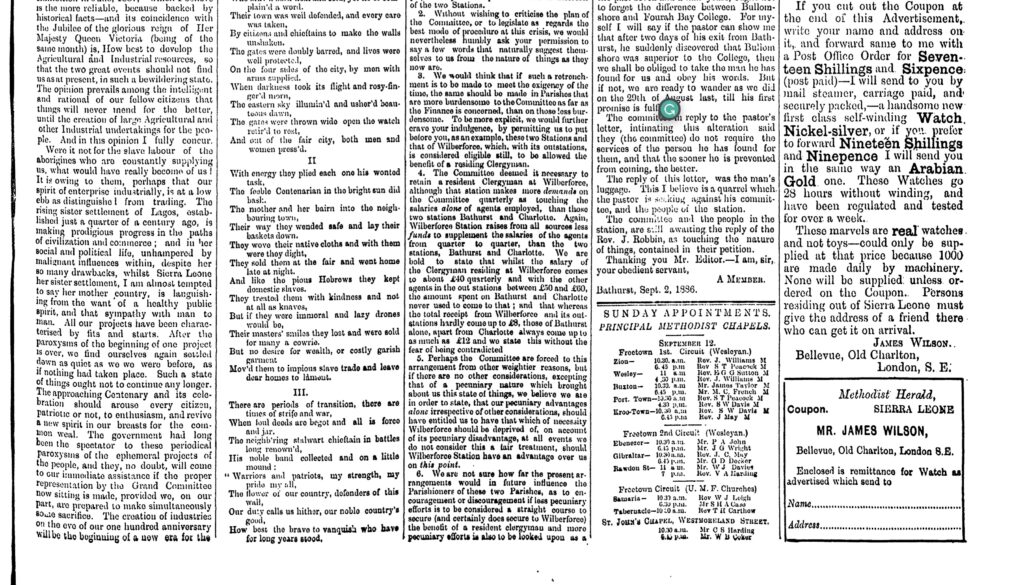


Source: The Methodist Herald, Freetown. September 8, 1886. Pg 3
This poem was probably written by Orishatukeh Faduma. He was born September 15, 1855 in Guyana to Egba recaptives and died January 25, 1946 in High Point, North Carolina. He got his first degree at the University of London in 1884 and was reportedly the first West African student to do so. He later got a degree in divinity at Yale. He was a missionary and an educator who had extensive careers in both Sierra Leone and the U.S.
See poem transcript below:
“A Tale of Egba Land
The following story of Egba Land, was told me by my dear father in the Aku language. My imperfect knowledge of the Aku language, and Aku versification compels me to relate it in these poor lines.
My sire is Faduma of pure and noble line,
An Egba of the Egbas a race renown’d and fine,
My sires were great warriors who wielded well the sword
Who brav’d both heat and cold, yet ne’er complain’d a word.
Their town was well defended, and every care was taken,
By citizen and chieftains to make the walls unshaken,
The gates were doubly barred, and lives were well protected,
On the four sides of the city, by men with arms supplied.
When darkness took its flight and rosy finger’s morn
The eastern sky illumin’d and usher’d beauteous dawn
The gates were thrown wide open the watch retir’d to rest,
And out of the fair city, both men and women press’d.
II
With energy they plied each one his wonted task,
The feeble Centenarian in the bright sun did bask.
The mother and her bairn into the neighbouring town,
Their way they wended safe and lay their baskets down.
They wove their native cloths and with them were they dight,
They sold them at the fair and went home late at night.
And like the pious Hebrews they kept domestic slaves,
They treated them with kindness and not at all like knaves,
But if they were immoral and lazy drones would be,
Their masters’ smiles they lost and were sold for many a cowrie.
But no desire for wealth, or costly garish garment
Mov’d them to impious slave trade and leave dear homes to lament.
III.
There are periods of transition, there are times of strife and war,
When foul deeds are begot and all is force and jar,
The neighb’ring stalwarts chieftain in battles long renown’d
His noble band collected and on a little mound:
“Warriors and patriots, my strength, my pride my all,
The flower of our country, defenders of this wall,
One day calls us hither, out noble country’s good,
How best the brave to vanquish who have for long years stood.
Around us dwells a tribe of matchless skill and might,
A terror to all lands and with them we must fight,
Their mighty walls and city must be rased to the ground,
The city be destroyed, the warriors be bound.”
IV.
“To arms, to arms, brave warriors and ere the close of day,
Your fitting must be ready and we must on our way.”
“To arms, to arms,” they cried, and with a desperate oneness,
Their martial armours seized, without a sign of sadness,
They brandished their weapons, they sang their native paean,
The blood in them was fir’s and they could meet defiance.
And now the tocain sounded and all was noise within,
And they full ready were either to die or win,
And now in form’d battalion with eagerness they wait,
And now they have the orders to march out from the gate,
The earth beneath them trembled o’er burden’d by the weight
Of a myriad feet of men who walk’d with giant gait.
V.
Twice did the battle rage from morning sun til noon,
Victory is doubtful, ‘twill be secured soon.
Crimson blood did flow, poison’d darts did fly,
Lo Egba’s chief fell wounded and he must surely die.
The winged son of Maia through all the host did bear,
The news of this mishap and their sad end which was near,
Then they redoubled courage and fought with wondrous main,
If haply they might conquer and save themselves from pain,
They wielded well the sword but the gods had them foretold;
The city would be ruin’d and prayers would not hold,
The dreadful day did come and by superior forces,
The city was destroyed and the fire had its course.
Freetown
August 25, 1886
Faduma.”
This poem is fascinating for many reasons including as a record of family history. In some ways it is fully in the tradition of things like lineage praise poems (orikis etc), that are poetic records of family histories existing in various West African societies. It is in a tradition but it is also clearly bringing something new, reflecting the emergence of a new kind of nineteenth-century West African. What do others think? Is your family history a poem?

